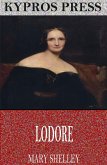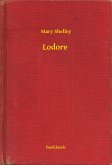Mary Shelley's "Lodore," published in 1835, is a compelling exploration of the complexities of gender, societal expectations, and individual autonomy. The narrative intricately weaves a tale of love and loss, following the tumultuous life of Lord Lodore and his daughter, as they navigate the prejudices of 19th-century society. Shelley's prose is rich and evocative, employing a Gothic style that reflects her fascination with the darker aspects of human nature, intertwined with romantic ideals, illustrating the struggle for personal freedom against the backdrop of family and societal constraints. Mary Shelley, often regarded as the mother of science fiction for her groundbreaking work "Frankenstein," drew from her own life experiences-experiences marked by loss, rebellion, and a keen awareness of women's issues in her era. Her personal hardships, including the death of her mother and the tumultuous relationships of her youth, profoundly influenced her writing. In "Lodore," Shelley challenges traditional gender roles, portraying female characters who seek agency and self-definition, thereby contributing significantly to feminist literature. "Lodore" is a vital read for anyone interested in Gothic literature or the evolution of women's writing in the 19th century. Shelley's keen insights into societal norms and her mastery of narrative make it a thought-provoking work that resonates with contemporary discussions surrounding gender and identity. This novel invites readers to reflect on the timeless dilemmas of love, duty, and the quest for autonomy.
Dieser Download kann aus rechtlichen Gründen nur mit Rechnungsadresse in A, B, BG, CY, CZ, D, DK, EW, E, FIN, F, GR, H, IRL, I, LT, L, LR, M, NL, PL, P, R, S, SLO, SK ausgeliefert werden.









